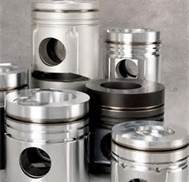Vehicle lightweighting is auto industry's best opportunity to achieve CAFE standard
 |
MADISON HEIGHTS, MI--Oct. 17, 2013: Lightweighting is the automotive industry's best bet to achieve the 2025 Corporate Average Fuel Economy standard, according to Chuck Evans, corporate vice president at Henkel Corporation's automotive group, in remarks at the WWJ Newsradio 950 Auto Summit held today in Southfield, Mich.
"There are plenty of options on the table to get us to 54.5 miles per gallon by 2025," Evans said. "Advanced powertrains, vehicle downsizing, lightweighting and other innovations are all being pursued. If we focus on vehicle lightweighting alone, according to MIT (Massachusetts Institute of Technology), the average new vehicle will weigh 28 percent less in 2016 than it does today, he said. Just imagine what we can do by 2025."
Vehicle lightweighting is about more than reducing weight and improving fuel economy. It's also about contributing to a better environment. Replacing two pounds of steel with one pound of aluminum saves 20 pounds of carbon dioxide emissions over the life of the vehicle, according to Alcoa. Additionally, fewer materials going into the vehicle means fewer industrial byproducts and a reduction of materials going into landfills.
"By incorporating the technologies that Henkel makes, we estimate that we can reduce the mass of every vehicle by more than 95 kilograms (approximately 209 pounds), which is the environmental equivalent of planting about 19 trees," Evans said.
Using lightweight materials is not without its challenges, though. Lightweight materials simply cannot be introduced by using traditional joining and surface treatment techniques. The use of new methods, like adhesives, plays a significant role. Evans said the solution is found in chemistry. In particular, cured adhesives provide a protective barrier between metals that prevents corrosion, which is key given the highly corrosive nature of material like aluminum.
Lightweight material has often been impractical or cost prohibitive to put into mass production. Henkel has developed various technologies, from pretreatment processes to adhesives, to make lightweighting and mass production possible.
Henkel's LOCTITE MAX 2 solution, for example, is a polyurethane-based resin system that cures faster than traditional epoxy resins. Due to its low viscosity, LOCTITE MAX 2 more easily penetrates the fiber material speeding up cycle times so lightweight materials like carbon fiber composites can be introduced on high-volume automotive production. Cycle time reduction varies per application. In one example, it was reduced from approximately 20 minutes to between 8-10 minutes; in another application, it was reduced to only 2-4 minutes.
For additional information about Henkel's capabilities in vehicle lightweighting, visit Lighten Up.


